An Attributional Analysis of Expressed Emotion in MexicanAmerican Families With Schizophrenia Amy Weisman, Steven Regeser Lopez, Marvin Karno, and Janis Jenkins In this study we tested an attributional model of expressed emotion (EE) among MexicanAmerican families A sample of 46 key family members of schizophrenic patients were measured on• Another family variable associated with schizophrenia is a negative emotional climate, or more generally a high degree of expressed emotion (EE) EE is a family communication style that involves criticism, hostility and emotional overinvolvementNov 07, · High expressed emotion (EE) in a patient's family is a known risk factor of relapse in schizophrenia The three components of high EE – criticism, hostility and emotional overinvolvement – were developed through a datadriven approach and a focus on overt abrasive behaviours The influence of covert abrasive behaviours has not been explored

Scielo Brasil Emocao Expressa De Familiares E Recaidas Psiquiatricas De Pacientes Com Diagnostico De Esquizofrenia Emocao Expressa De Familiares E Recaidas Psiquiatricas De Pacientes Com Diagnostico De Esquizofrenia
What is high functioning schizophrenia
What is high functioning schizophrenia-Aug 23, 12 · Duclos J, Vibert S, Mattar L, & Godart N (12) Expressed emotion in families of patients with eating disorders A review of the literature Current Psychiatry Reviews Vol 8, pt 3, pp Read SummaryMar 28, 15 · Expressed emotion of family members has a considerable role in the treatment process Schizophrenia sufferers who are exposed to family environments characterized by a high level of criticism, hostility and emotional overinvolvement demonstrate a higher rate of relapse
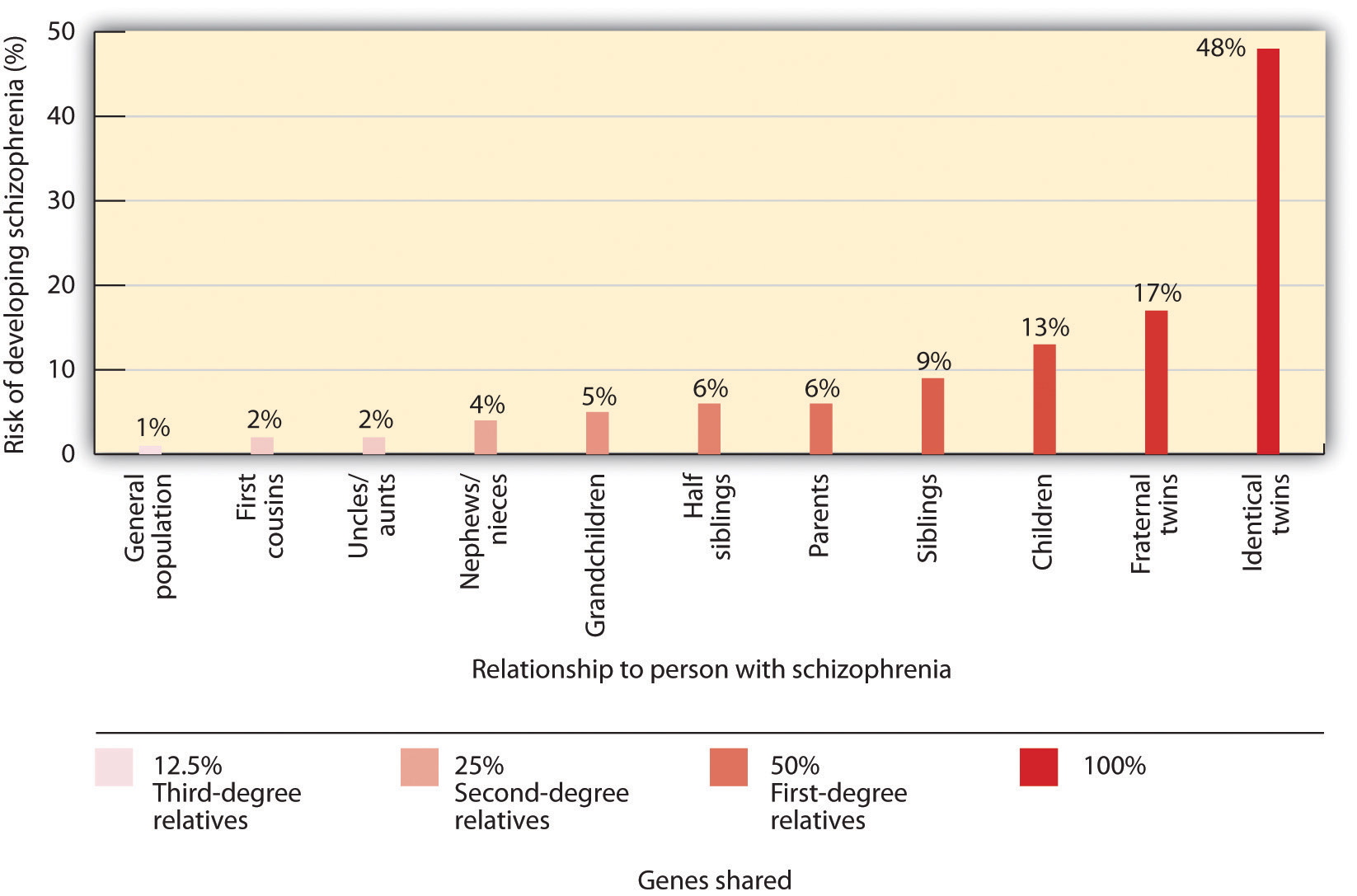



Schizophrenia The Edge Of Reality And Consciousness
Family members of high expressed emotion is likely to complain about the drinking before the rehabilitation which causes the start of drinking again This creates more criticism toward the patient and in addition causes a set back where the person does not care to get better again Expressed emotion and schizophrenia in north India IIAN OVERVIEW OF EXPRESSED EMOTION Carl V Rabstejnek PE, MBA, PhD Purpose of This Review The intent of this piece is to gather together essential elements of Expressed Emotion (EE) — as preparation for articles expanding our knowledge of the emotional effects of familySchizophrenics were far more likely to relapse in families that engaged in high levels of expressed emotion
Jul 06, · Expressed emotion in firstepisode schizophrenia and in ultra highrisk patients Results from the Programma00 (Milan, Italy) Psychiatry Research, 1(3), 331–338 Olson, D (11) FACES IV and the Circumplex Model Validation Study Journal of Marital and Family Therapy, 37(1), 6480A Case of Schizophrenia with High Expressed Emotion, Caregivers Burnout and Family Dysfunction Ms Sabana Nasrin Islam 1, Ms Buli Nag Daimari 2* ABSTRACT Ongoing family stress and demands during the course of treatment and care giving pose challenges for the mental health professionals besides the primary care provided by the familyKeywords expressed emotion, assessment, rating scales, Five Minute Speech Sample (FMSS), perceived criticism The construct of expressed emotion (EE) is now well established as an important measure of the family environment Developed in the 1960s and 1970s in England by Brown, Birley, and Wing (1972;
Nov 07, · High expressed emotion (EE) in a patient's family is a known risk factor of relapse in schizophrenia The three components of high EE criticism, hostility and emotional overinvolvement were developed through a datadriven approach and a focus on overt abrasive behaviours The influence of covert abrasive behaviours has not been exploredOct 08, 05 · Higher degrees of expressed emotion in the environment of a patient have been empirically found to be robust predictors of relapse of schizophrenia, eating disorder, and mood disorders It has also been investigated as a contributor to the progress of unipolar depression, bipolar disorder, dementia, and diabetesExpressed emotion, critical comments, hostility and emotional over involvement have been shown to be most predictive of relapse 1 Expressed emotion can be rated as 'high' or 'low' Most studies support the hypothesis that high expressed emotion predicts relapse of schizophrenia 2 Brown and colleagues studied relapse rates of people in




It S Good To Talk The Role Of The Family In Schizophrenia Psychology At Nottingham Trent University




Correlation Of Family Expressed Emotion And Frequency Of Relapse Schizophrenia Patients Journal Of Clinical And Cultural Psychiatry
Here I briefly discuss two published papers on the effects of expressed emotion and the impact it has on people with the mental illness SchizophreniaAug 06, 1994 · Patients with schizophrenia in families with high expressed emotion are more likely to relapse despite receiving maintenance neuroleptic medication, and to relapse more often, than those whose key relatives show low expressed emotion 13,15,16 Spending much of the week in close contact with a relative with high expressed emotion greatlyEmotion" (yelling, shouting, fighting, or critical or hostile comments) and stress that is in the living environment of the person with schizophrenia Research has demonstrated that individuals from families with high "expressed emotion" are 37 times more likely to relapse than in families from low expressed emotion families
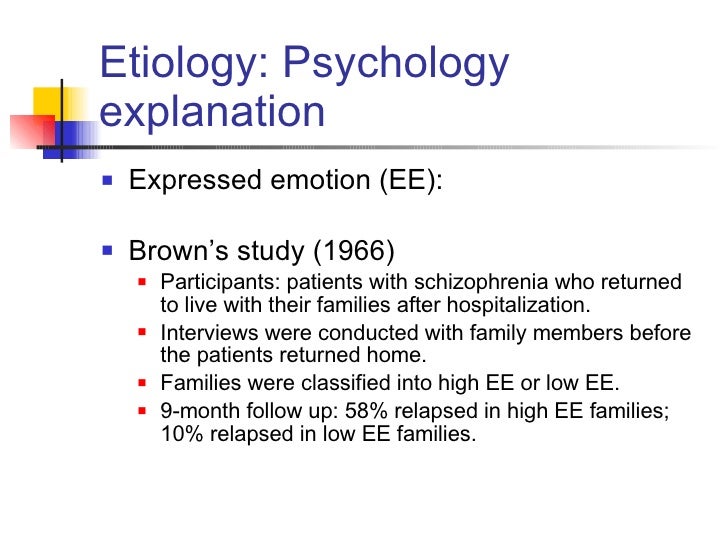



Schizophrenia




Impact On Families Neura Library
Jun 06, 21 · • Another family variable associated with schizophrenia is a negative emotional climate, or more generally a high degree of expressed emotion (EE) EE is a family communication style that involves criticism, hostility and emotional overinvolvementThe expressed emotion (EE) measure is a robust predictor of relapse in schizophrenia At least twelve studies from a range ofComparison of the needs and characteristics of relatives classified as high and low expressed emotion (EE) across a range of measures including social functioning and indices of stress and family burden revealed that high EE relatives reported higher levels of disturbed behaviour, subjective burden, and perceived themselves as coping less effectivelyFamily members high in expressed emotion cause relapse in psychological disorders such as schizophrenia, alcoholism, children with learning disabilities, and bipolar disorder The stress from negative criticism and pity becomes a burden on the person with a




Scielo Brasil Emocao Expressa De Familiares E Recaidas Psiquiatricas De Pacientes Com Diagnostico De Esquizofrenia Emocao Expressa De Familiares E Recaidas Psiquiatricas De Pacientes Com Diagnostico De Esquizofrenia




Effect Of Caregivers Expressed Emotion On The Care Burden And Ppa
Dec 03, 18 · Family stress may be in a form of expressed emotion, hostility and/or, criticism Higher levels of expressed emotion (EE) are associated with susceptibility to affective psychopathology in parentsKoutra, Vgontzas, Lionis, &Note A great deal of research has examined the role of "expressed emotion" in families that have a member with schizophrenia High levels of expressed emotion (hostility, being overly critical, emotional overinvolvement) in these families have been linked to an increased risk for relapse and rehospitalization




Abnormal Psychology In A Changing World Seventh Edition
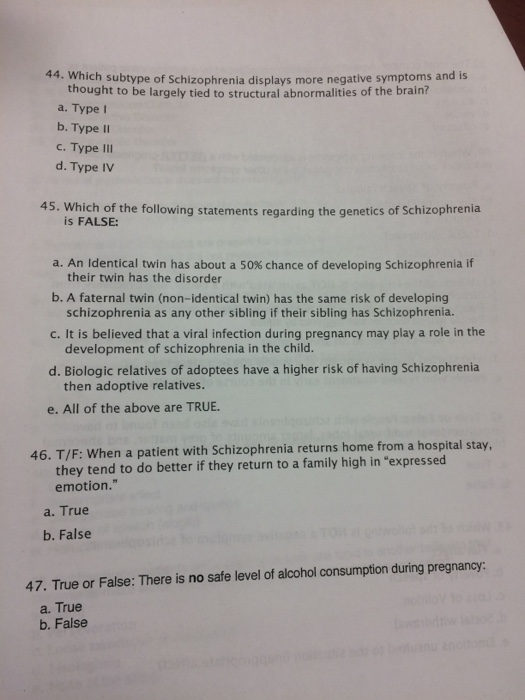



Solved Which Subtype Of Schizophrenia Displays More Negat Chegg Com
May 01, 02 · Table 1 presents the percentages of high EE across ethnic groups and across measures To address the question of the relationship between ethnicity, assessment, and expressed emotion, SAS GENMOD procedure was performed The GENMOD procedure is an extension of traditional linear models with binomial (high versus low EE) data and repeatedSep 13, 12 · An appropriate understanding of the association between highExpressed Emotion (EE) in family members of people with schizophrenia, patients' and relatives' correlates is needed to improve adaptation of psychoeducational interventions in diverse culturesJan 01, 12 · The expressed emotion (EE) is considered to be an adverse family environment, which includes the quality of interaction patterns and nature of family relationships among the family caregivers and patients of schizophrenia and other psychiatric disorders Influence of EE has been found to be one of the robust predictors of relapse in schizophrenia




Schizophrenia




Pdf Expressed Emotion Ee In Families Of Individuals At Risk Of Developing Psychosis A Systematic Review Semantic Scholar
Jun 13, 17 · Having high levels of EE in the family environment is widely recognized as a robust environmental risk factor for relapse and exacerbation of the illness 6–8 across numerous countries and cultures 9,10 Phillips and Xiong used the CFI scale in China and found that 421% of the family members of schizophrenia patients had high expressedA family environment with high levels of expressed emotion and emotional overinvolvement could play a key role in maintaining the schizophrenic behaviours What did Kavanagh find about relapse?The authors present the case of a young African American male with acute relapse of symptoms of schizophrenia in the background of a family with high EE Keywords Expressed emotion, schizophrenia, psychiatric disorders, relapse Introduction versus 21% for those living low EE families




Pdf Patient Attributes And Expressed Emotion As Risk Factors For Psychotic Relapse Willem Scholte Academia Edu
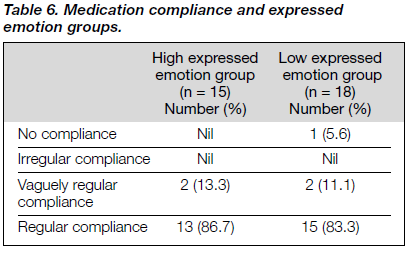



Expressed Emotion And Relapse Of Schizophrenia In Hong Kong
Jul 11, 05 · A sample of 51 family members were interviewed and administered the three instruments A total of 294% of families were found to be high‐EE critical and 137% high‐EE emotional over involvement using the FMI The FAS and ACL prove internally consistent and were significantly correlated but not with the FMIThe families of schizophrenic patients were studied to find out the level of expressed emotion in them leading to the relapse of these patients The patients were having more than two episodes of schizophrenia (DSMIIIR) The most salient finding was the virtual absence of high level of expressed emotion as the cause of relapseETHNICITY, EXPRESSED EMOTION, AND SCHIZOPHRENIA 429 tionship of family EE to patient relapse Their data revealed that high EE is not the best predictor of outcome Fifty percent or 353 of the 705 patients who returned to highEE families relapsed In contrast, 21% or 135 of the 641 patients who returned to lowEE families relapsed (A similar




Solved Question 41 Recent Evidence Shows That Exposure To Chegg Com
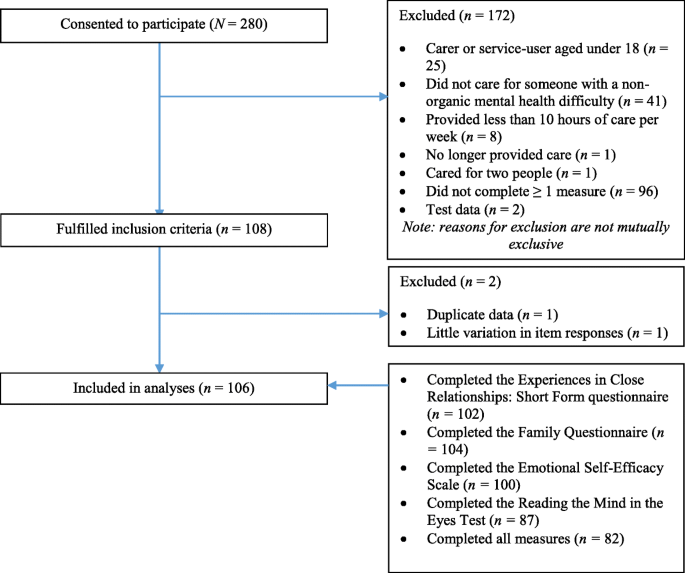



Attachment Mentalisation And Expressed Emotion In Carers Of People With Long Term Mental Health Difficulties Bmc Psychiatry Full Text
Jul 09, 13 · Criticism directed by caregivers towards a family member with schizophrenia, both from the perspective of the patient and of the caregiver, predicts relapse, although both perspectives differ This study aims to verify if the same applies to a Mediterranean sample, where criticism is not the main attitude of high expressed emotion familiesOct 30, 00 · Subjects were 30 patients suffering from schizophrenia with at least one of their family members showing high expressed emotion (EE) in the Camberwell Family Interview After the SES, the patients were randomly allocated to two groups those who received routine individual outpatient treatment and those who received additional SFT and routineJun 01, 1998 · Background Expressed emotion (EE) is a measure of the family environment that has been demonstrated to be a reliable psychosocial predictor of relapse in schizophrenia However, in recent years some prominent nonreplications of the EErelapse relationship have been published To more fully address the question of the predictive validity of EE, we conducted a




Chapter 12 Schizophrenia And Other Psychotic Disorders Ppt Download



Expressed Emotion And Relapse Of Schizophrenia In Hong Kong Document Gale Onefile Health And Medicine
Higher expressed emotion within families was strongly correlated with relapse in patients with schizophrenia who returned to their family environment Low expressed emotion environments demonstrated a much lesser risk of relapse Leff (1990) Found high levels of expressed emotion in only 23% of families in Chandigarh, India1 High Expressed Emotion Once the taped is watched and carefully analysed, the type of expressed emotion is decided Those who are decided to have high expressed emotion are very critical and hostile They do not know any other way to help support the family member because they feel like they are helpingHowever, little evidencebased information is available to assist family caregivers of individuals with depression In the present exploratory study, we examined the effectiveness of a cognitive behaviour therapy (CBT) based guided selfhelp (GSH) manual in decreasing EE in




Attachment Mentalisation And Expressed Emotion In Carers Of People With Long Term Mental Health Difficulties Bmc Psychiatry Full Text




Caregiver Expressed Emotion And Psychiatric Symptoms In African Americans With Schizophrenia An Attempt To Understand The Paradoxical Relationship Gurak 17 Family Process Wiley Online Library
Jan 01, 1987 · Abstract Although mental health professionals have shown much enthusiasm for the concept "expressed emotion (EE)," little critical analysis of the concept has appeared in the literature Placing families in dichotomous categories of high EE and low EE amounts to stereotyping;Dec 15, · A schizophrenia diagnosis often triggers a sense that "all is lost" and neither the patient nor the family has any control over the illness Thanks to a number of studies in the field of expressed emotion (EE), we now know that medication isn't the only optionSuch an approach does little to help professionals in
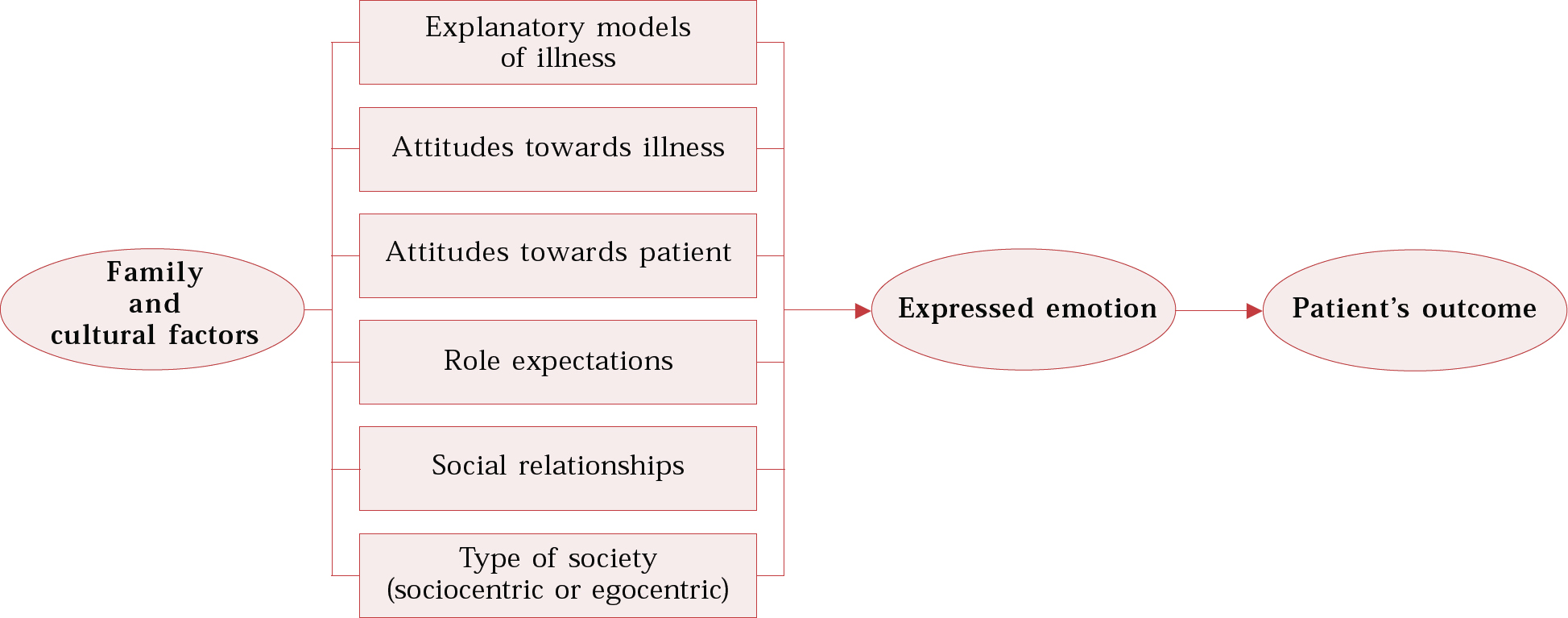



Expressed Emotion Across Cultures Advances In Psychiatric Treatment Cambridge Core




Expressed Emotion And Relapse Of Schizophrenia In Hong Kong
Brown & Rutter, 1966),The expressed emotion (EE) is considered to be an adverse family environment, which includes the quality of interaction patterns and nature of family relationships among the family caregivers and patients of schizophrenia and other psychiatric disorders Influence of EE has been found to be one of the robust predictors of relapse in schizophreniaExpressed Emotion and Schizophrenia, (Vaughn and Leff, 1976) Evidence for particular differences in family relationships as a cause of schizophrenia is fairly weak




Pdf Expressed Emotion In Schizophrenia An Overview Anekal C Amaresha Academia Edu




Effect Of Caregivers Expressed Emotion On The Care Burden And Ppa
Oct 21, 15 · High expressed emotion (EE) can extend the duration of illness and precipitate relapse;Dec 08, 10 · People with schizophrenia are more likely to experience a relapse within family groups when there are high levels of expressed emotion (hostility, criticism or over involvement) within the family, compared to families who tend to be less expressive of their emotionsNov 29, 18 · Family members are the main caregivers of people with schizophrenia in communitybased mental health services The literature emphasizes the family dynamic and Expressed Emotion (EE) of the family members as fundamental determinants in the course of this mental disorder (GómezdeRegil, Kwapil, & BarrantesVidal, 14;




The Role Of Family Dysfunction In Schizophrenia A Level Psychology Ao1 Revision Youtube




Resourcd File
The expressed emotion (EE) measure is a robust predictor of relapse in schizophrenia At least twelve studies from a range of cultures have now shown this, although the authors of one maintain their findings are the result of confounding factors



Gale Onefile Health And Medicine Document Comparison Between Camberwell Family Interview And Expressed Emotion Scale In Determining Emotions Of Caregivers Of Schizophrenic Patients Sizofreni Hastalarina Bakim Verenlerin Duygu Ifadelerini




Pdf Characteristics Of Parents With High Expressed Emotion And Related Factors A Study Of Parents Of Adults With Schizophrenia




The Critical Period Specific Interventions Section 7 The Recognition And Management Of Early Psychosis




Abnormal Psychology In A Changing World Eighth Edition Jeffrey S Nevid Spencer A Rathus Beverly Greene Chapter 12 Schizophrenia And Other Psychotic Disorders Abnormal Psychology Family Communication Psychology
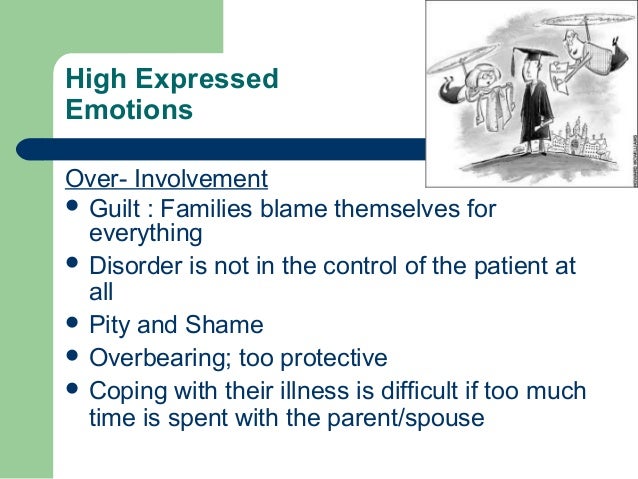



Expressed Emotions
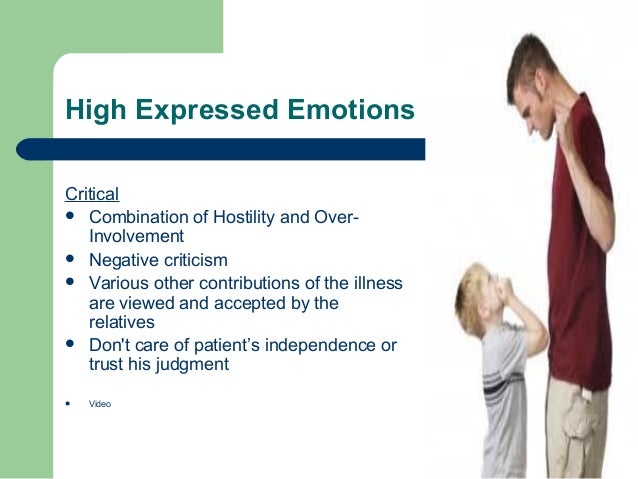



Expressed Emotions
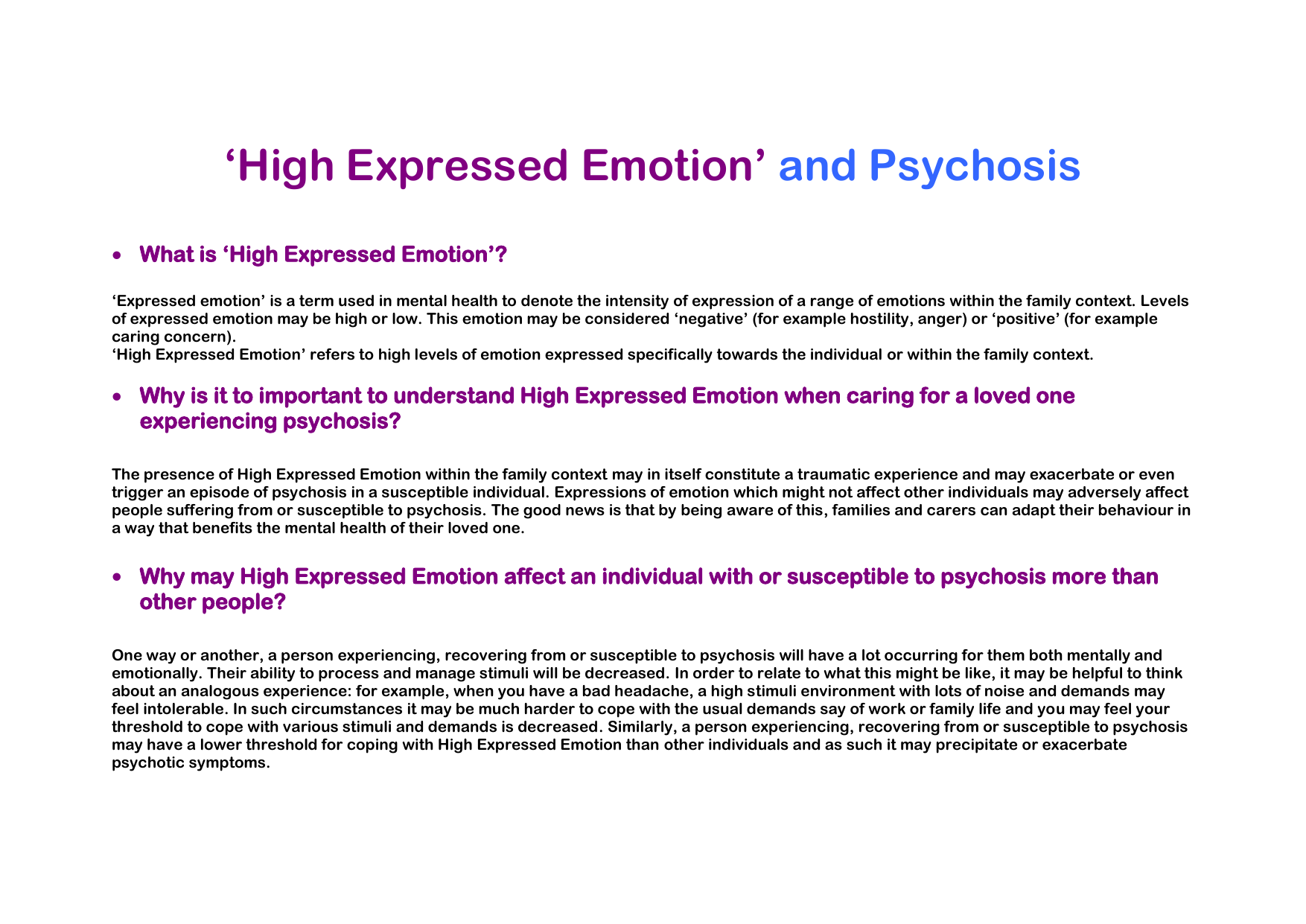



High Expressed Emotion Oxford Health Nhs Foundation Trust
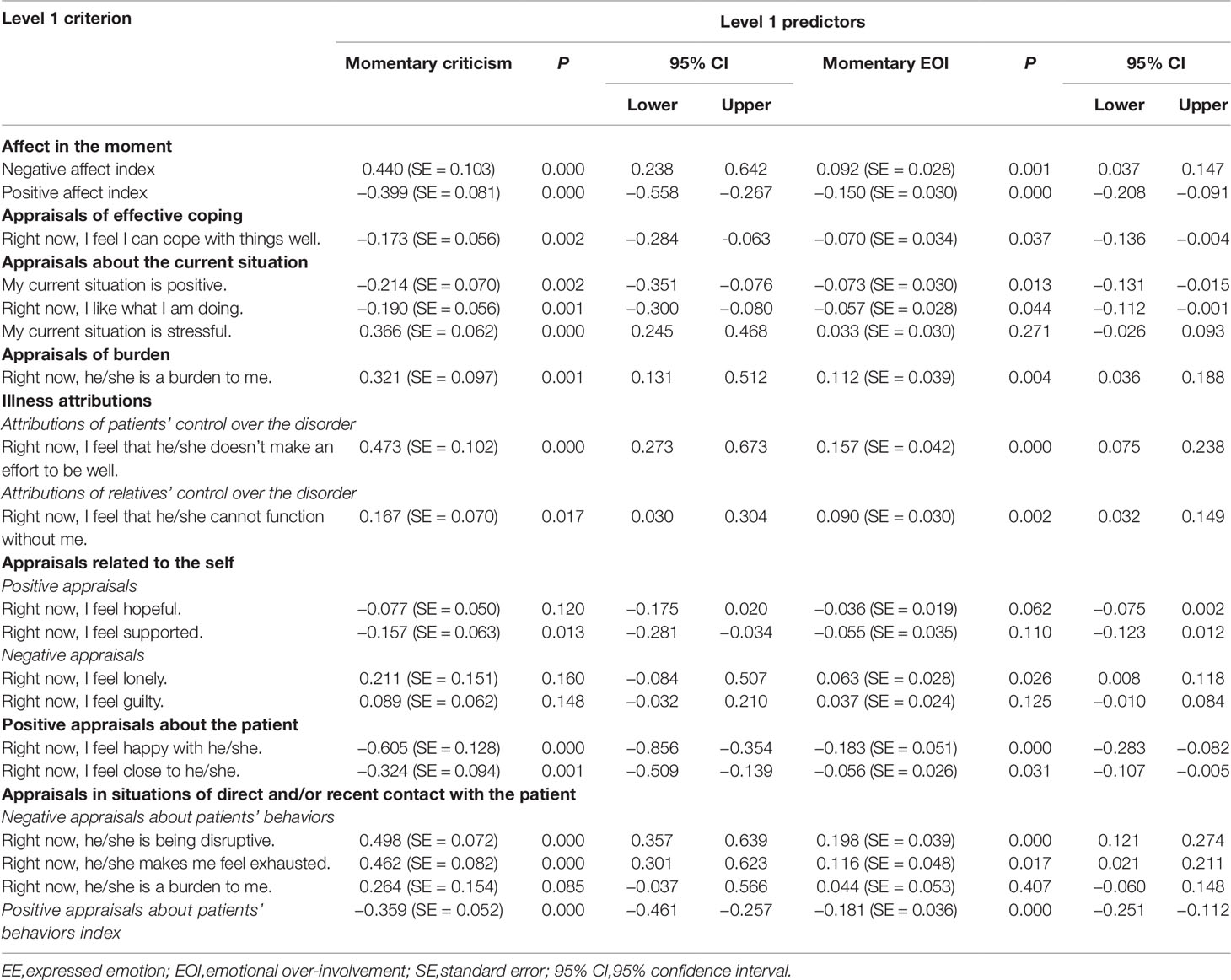



Frontiers Ecological Validity Of Expressed Emotion In Early Psychosis Psychiatry




Can Parent Training For Parents With High Levels Of Expressed Emotion Have A Positive Effect On Their Child S Social Anxiety Improvement Sciencedirect




Testing The Psychometric Properties Of A Chinese Version Of The Level Of Expressed Emotion Scale
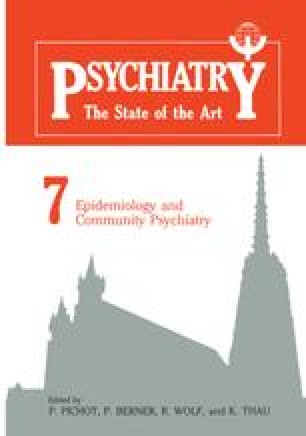



The Concept Of Expressed Emotion New Empirical Evidence Springerlink
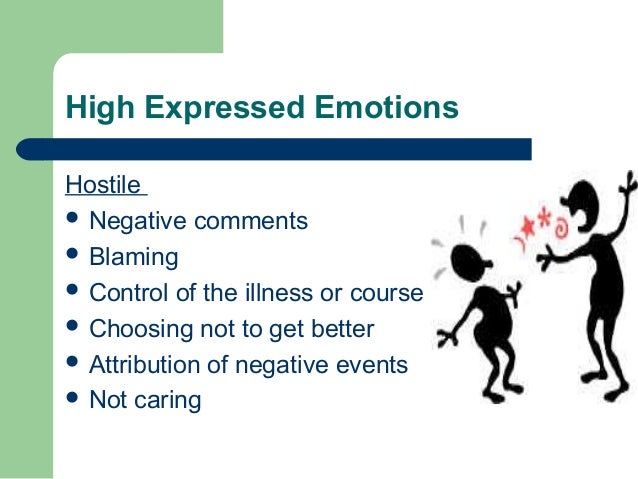



Expressed Emotions




Psych 1023 Chapter 15 Psychological Disorders Diagram Quizlet




Figure 2 From A Model Of Family Response To Mental Illness The Role Of The Family In Schizophrenia Semantic Scholar




Psya4 Psychological Explanation Of Schizophrenia Youtube
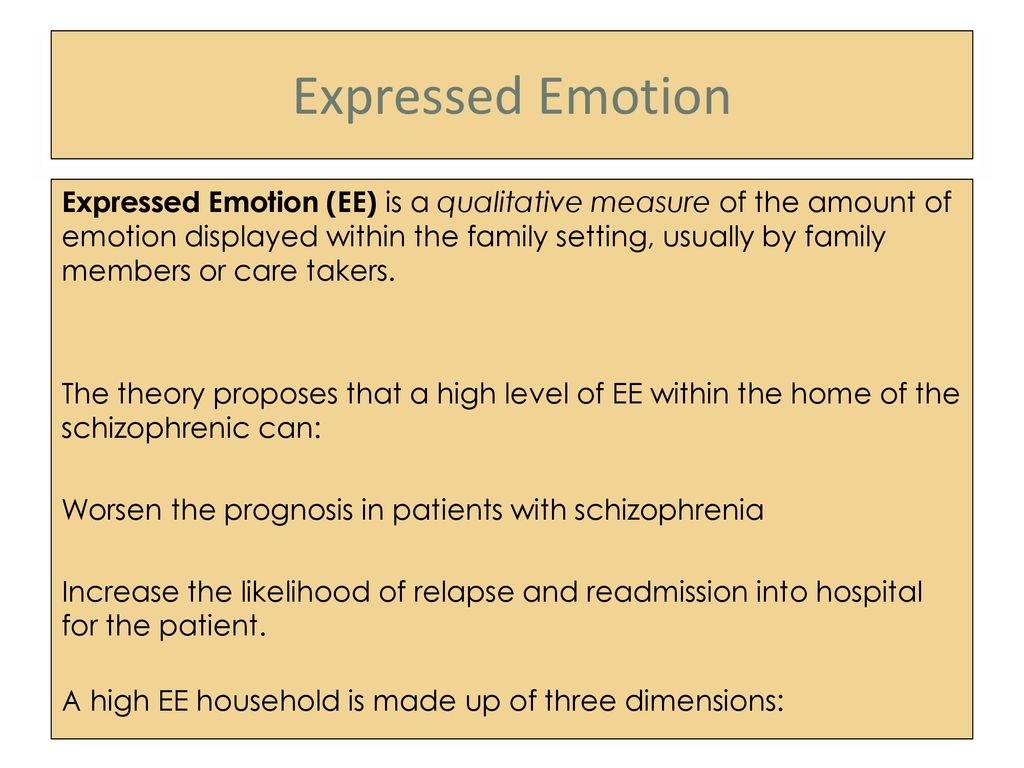



Psychological Explanation Ppt Download




Abnormal Psychology In A Changing World Seventh Edition




Schizophrenia The Edge Of Reality And Consciousness




Expressed Emotion Camberwell Family Interview Psychiatry Action Philosophy




Sociocultural Factors Sz Ppt Download




Effect Of Caregivers Expressed Emotion On The Care Burden And Ppa




Pdf Measuring Expressed Emotion An Evaluation Of The Shortcuts




Expressed Emotions And Schizophrenia In Pakistan




Pdf Assessment Of Correlation Of General Health And Expressed Emotion In Family Members Of Patients With Schizophrenia In Selected Medical College Hospitals In Assam Semantic Scholar




Expressed Emotion And Relapse Of Schizophrenia In Hong Kong




High Expressed Emotion 1 Psychosis Psychology



Full Article Family Environment Expressed Emotion And Adolescent Self Harm A Review Of Conceptual Empirical Cross Cultural And Clinical Perspectives




Schizophrenia Psychological Explanations 1 Family Theories Ppt Download



Predictors Of Criticism And Emotional Over Involvement In Relatives Of Early Psychosis Patients
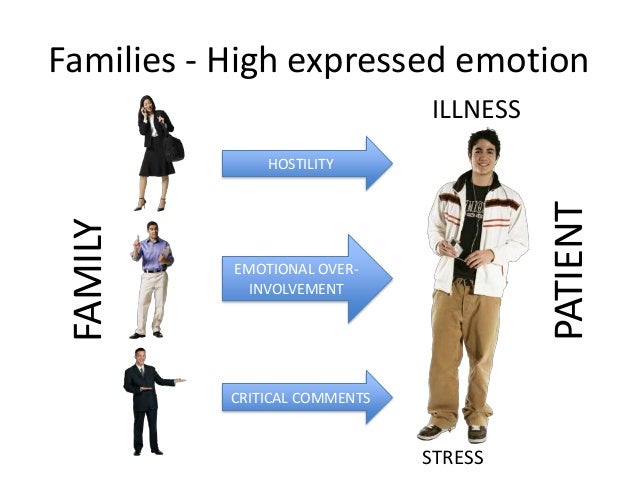



Relationships And Mental Illness




Pdf High Level Of Expressed Emotions In The Family Of People With Schizophrenia Has A Covert Abrasive Behaviours Component Been Overlooked Semantic Scholar
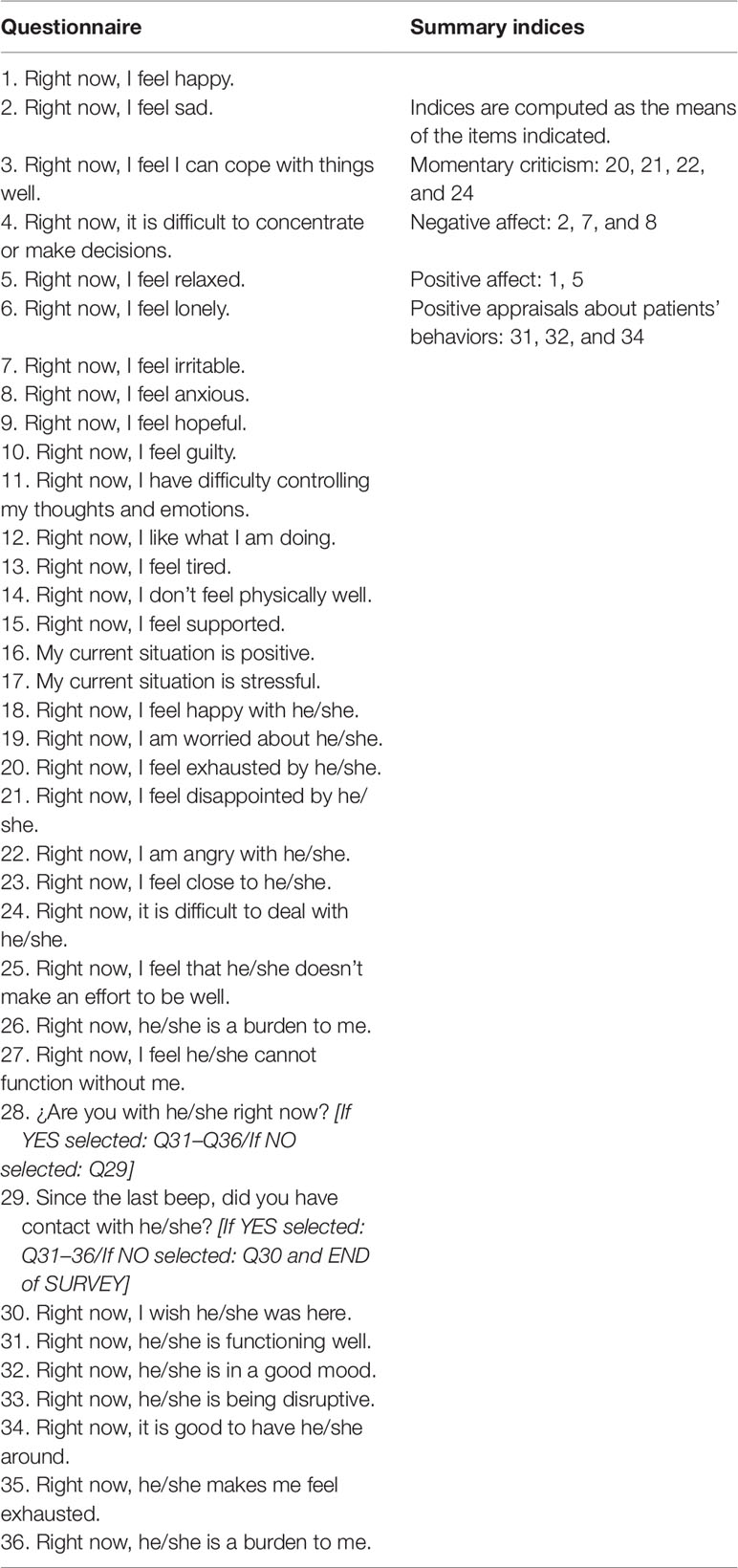



Frontiers Ecological Validity Of Expressed Emotion In Early Psychosis Psychiatry
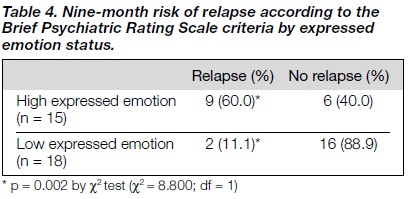



Expressed Emotion And Relapse Of Schizophrenia In Hong Kong




Pdf Expressed Emotion In The Partners Of A Non Clinical Adult Sample A Comparison With Relatives Of Patients With Schizophrenia And Depression




Kcm4issgegsqxm




Dysfunctional Families And Schizophrenia Part1 Youtube
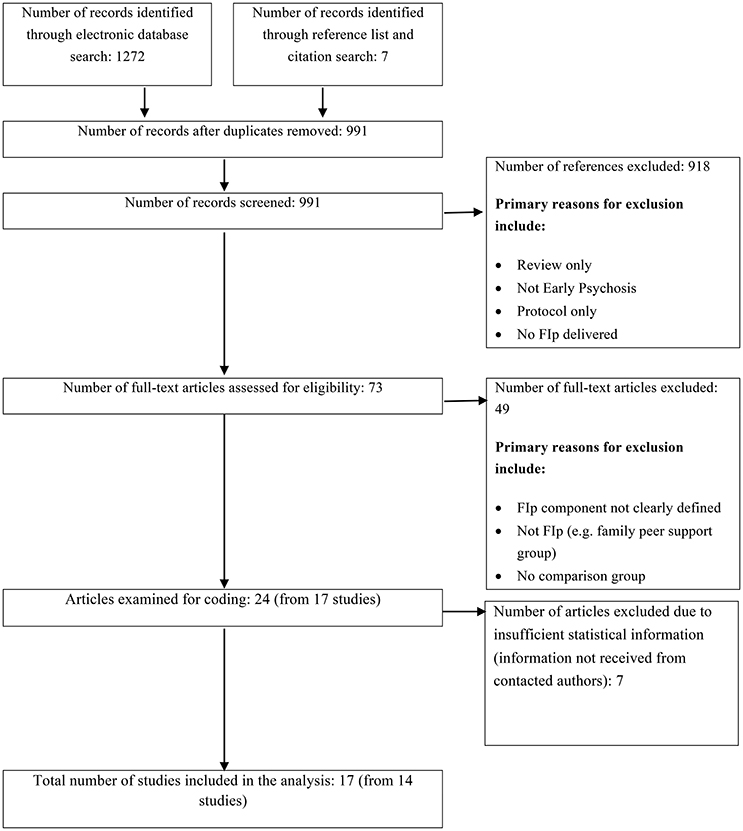



Frontiers Do Family Interventions Improve Outcomes In Early Psychosis A Systematic Review And Meta Analysis Psychology




Expressed Emotion And Relapse Of Schizophrenia In Hong Kong




Expressed Emotion Framework Download Scientific Diagram




Guilt Shame And Expressed Emotion In Carers Of People With Long Term Mental Health Difficulties A Systematic Review Sciencedirect




Kcm4issgegsqxm




Family Psychoeducation For Major Depression Randomised Controlled Trial Major Depressive Disorder Electroconvulsive Therapy
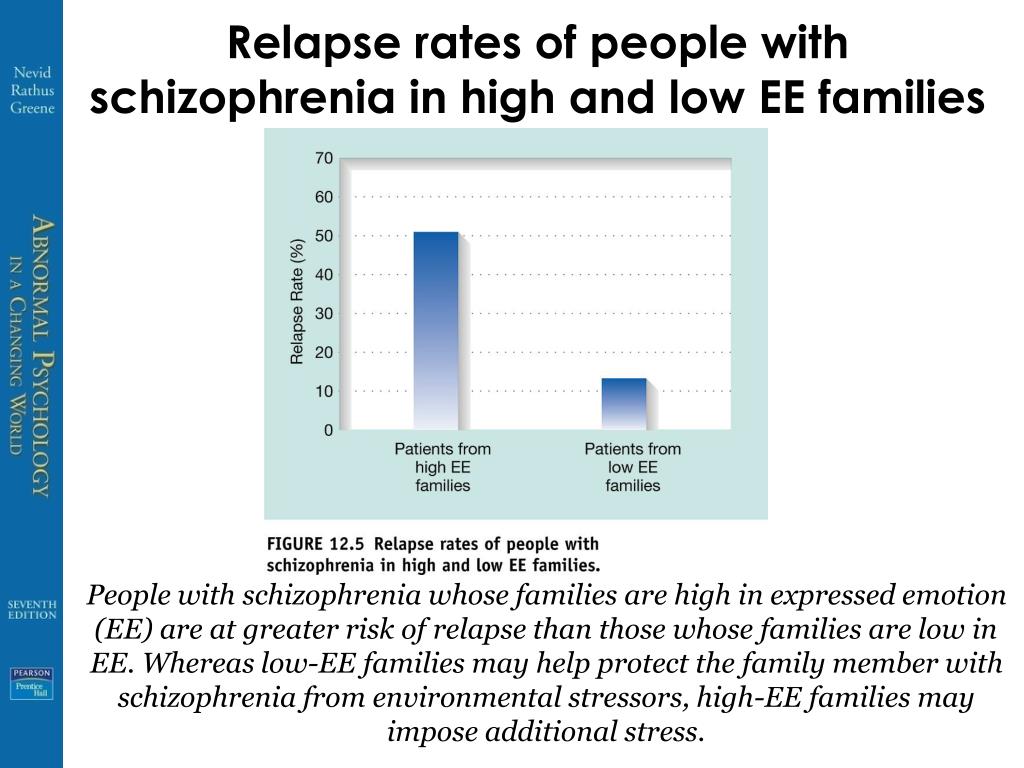



Ppt Chapter 12 Pp 410 422 Schizophrenia And Other Psychotic Disorders Powerpoint Presentation Id




Lecture 6 Expressed Emotion In Schizophrenia And Other Disorders Psy 303 Psychopathology Docsity




Pdf Expressed Emotion And Covert Criticism In Families Of Patients With Schizophrenia And Depression



Plos One Relatives Attachment Anxiety Mediates The Association Between Perceived Loss And Expressed Emotion In Early Psychosis




Pdf High Level Of Expressed Emotions In The Family Of People With Schizophrenia Has A Covert Abrasive Behaviours Component Been Overlooked Semantic Scholar
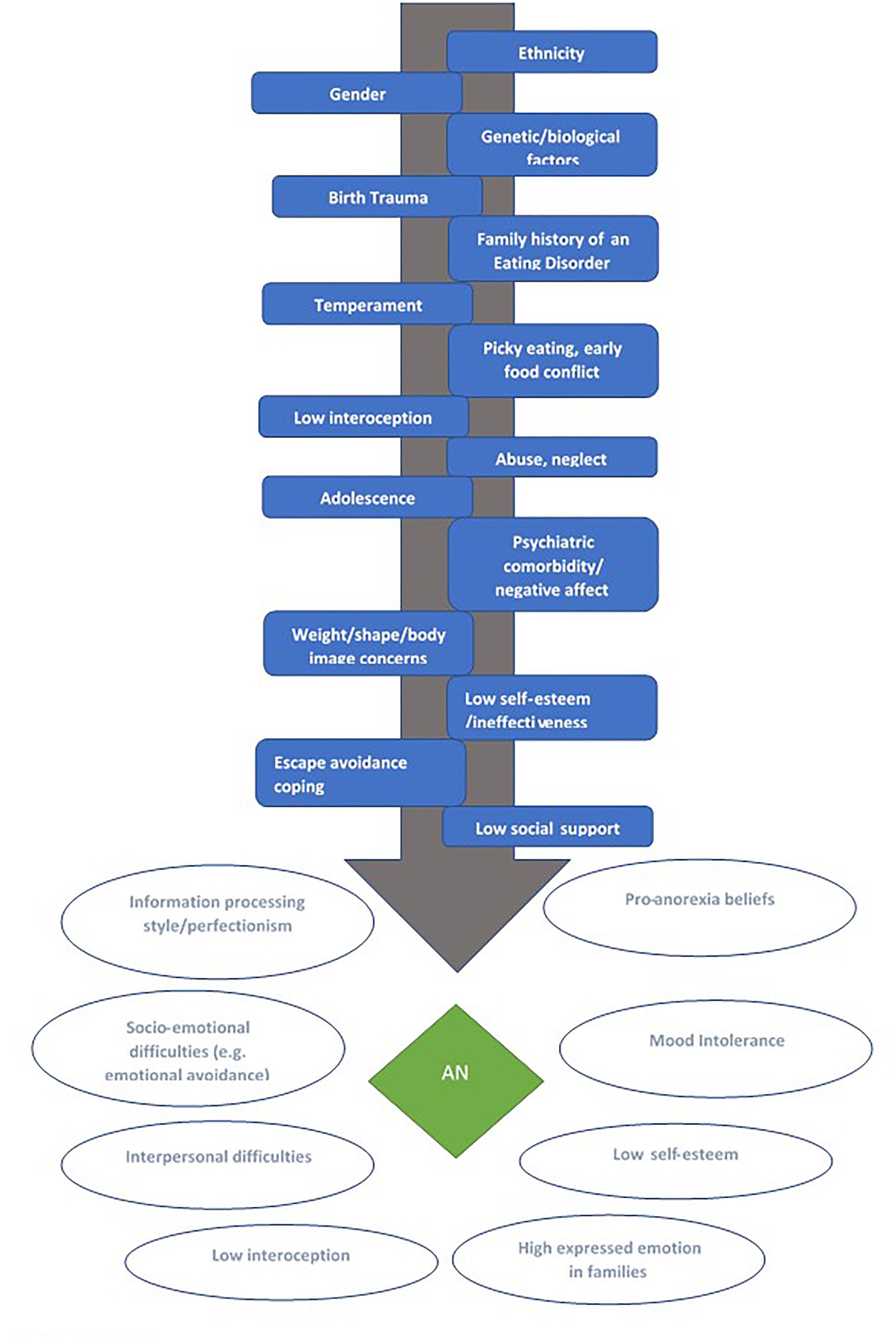



Frontiers Anorexia Nervosa And A Lost Emotional Self A Psychological Formulation Of The Development Maintenance And Treatment Of Anorexia Nervosa Psychology




Expressed Emotion And Relapse Of Schizophrenia In Hong Kong




Pdf High Level Of Expressed Emotions In The Family Of People With Schizophrenia Has A Covert Abrasive Behaviours Component Been Overlooked Semantic Scholar




Effect Of Caregivers Expressed Emotion On The Care Burden And Ppa
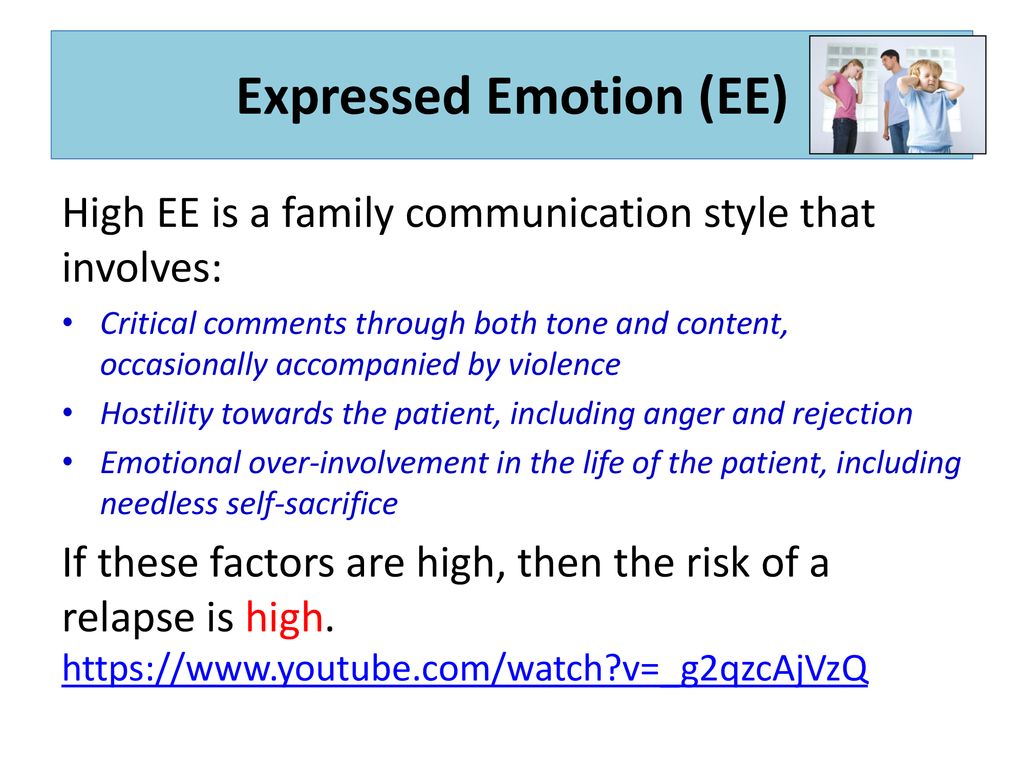



Psychological Explanations For Schizophrenia 1 Ppt Download
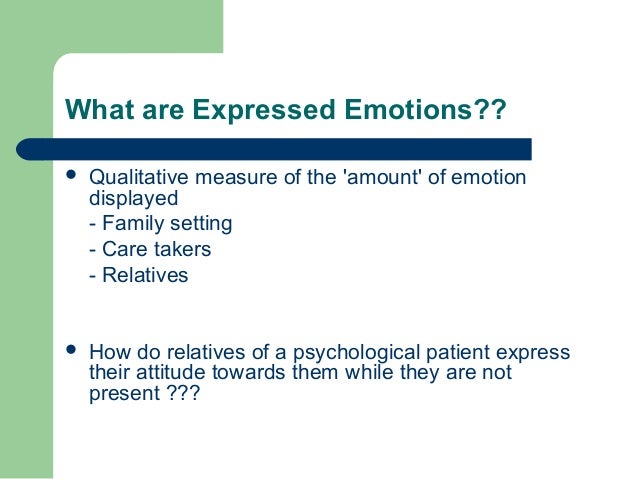



Expressed Emotions




Stigma Expressed Emotion And Quality Of Life In Caregivers Of Individuals With Dementia Weisman De Mamani 18 Family Process Wiley Online Library



Preventing Schizophrenia And Lowering Risks Schizophrenia Com



Predictors Of Criticism And Emotional Over Involvement In Relatives Of Early Psychosis Patients




Expressed Emotions And Schizophrenia In Pakistan


